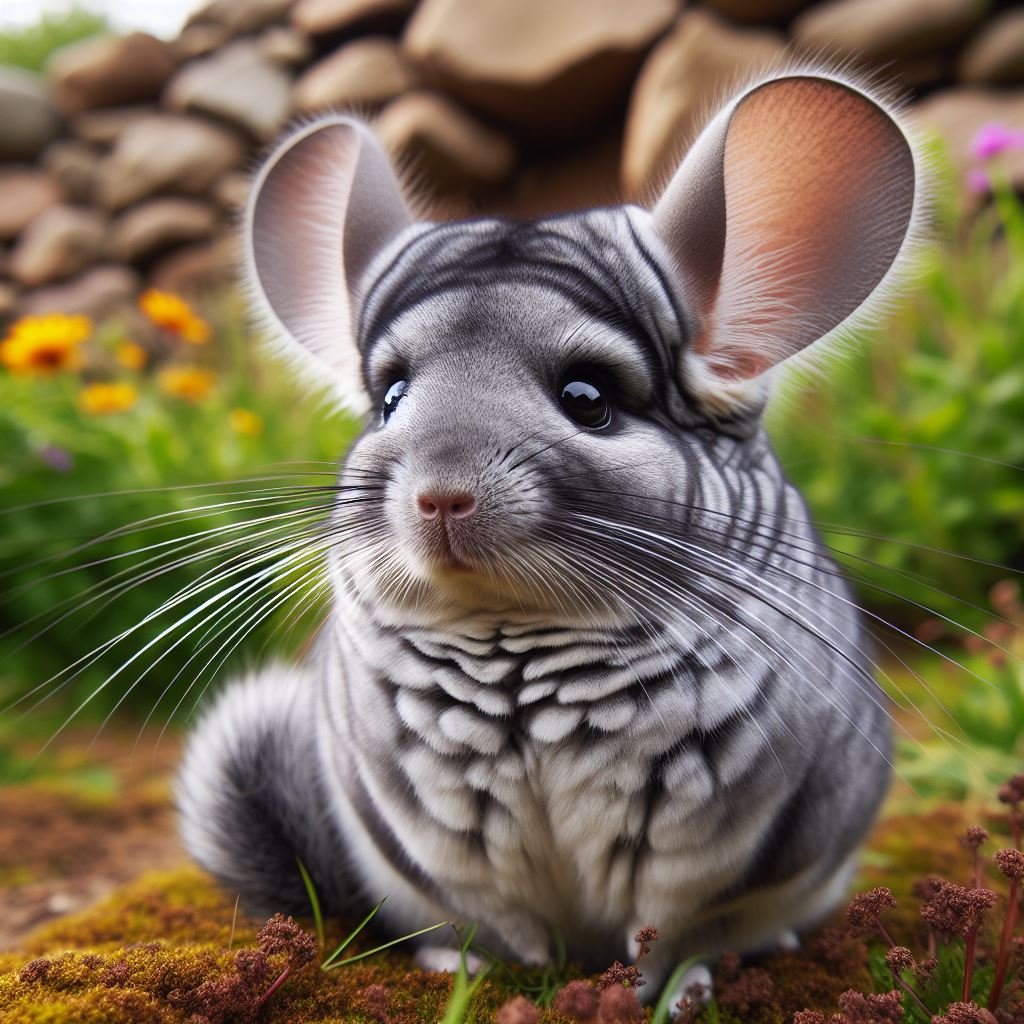Are you looking for a pet that is cute, cuddly, and easy to care for? Do you want a pet that can live for up to 20 years, and doesn’t need much attention or space? If so, you might want to consider getting a chinchilla.
Chinchillas are small rodents that are native to the Andes mountains of South America. They have soft, dense fur that comes in various colors, such as gray, white, black, beige, and violet. They have large ears, bushy tails, and expressive eyes. They are very active and playful, and they love to explore and chew on various items.
Chinchillas are ideal pets for busy people who don’t have a lot of time or resources to devote to their pets. Here are some of the reasons why chinchillas are the ultimate low-maintenance pets:
Chinchillas don’t need much space
Chinchillas are very adaptable and can live in a variety of environments. They don’t need a lot of space, as long as they have a comfortable cage that is large enough for them to move around and exercise. A cage that is at least 2 feet by 2 feet by 3 feet is recommended for one or two chinchillas. The cage should have multiple levels, platforms, ramps, and hiding places for the chinchillas to enjoy. The cage should also have a solid bottom and a wire mesh top and sides for ventilation and security.
Chinchillas can be kept in any room that is cool, dry, and well-ventilated. They are sensitive to heat and humidity, and they can suffer from heatstroke if the temperature exceeds 80°F or the humidity exceeds 50%. They also prefer a quiet and dark environment, as they are nocturnal animals that sleep during the day and are active at night. Therefore, it is best to keep the cage away from direct sunlight, heaters, air conditioners, and loud noises.
Chinchillas don’t need much grooming

Chinchillas have very thick and soft fur that protects them from the cold and parasites. Unlike other rodents, they do not produce any odor or dander, and they do not need to be bathed with water. In fact, water can damage their fur and cause skin infections. Instead, chinchillas groom themselves by rolling in a special dust bath that absorbs the excess oil and dirt from their fur. The dust bath should be made of fine volcanic ash or pumice, and it should be provided to the chinchillas at least twice a week for 10 to 15 minutes each time. The dust bath should be placed in a shallow container that is large enough for the chinchillas to roll in, and it should be removed after each use.
Chinchillas also need to have their nails trimmed regularly, as they can grow very long and sharp. This can be done by using a small pair of scissors or a nail clipper, and by cutting only the tip of the nail, avoiding the blood vessel that runs through it. If the nail is cut too short, it can bleed and cause pain and infection. It is advisable to have a styptic powder or cornstarch on hand to stop the bleeding in case of an accident.
Chinchillas don’t need much food
Chinchillas are herbivores that have a very sensitive digestive system. They need a diet that is high in fiber and low in fat and sugar. The main food for chinchillas is hay, which should be fresh, dry, and available at all times. The best type of hay for chinchillas is timothy hay, which is rich in fiber and low in calcium. Alfalfa hay, which is high in calcium and protein, can be given as a treat once in a while, but not as a staple food.

Chinchillas also need a small amount of pellets, which should be specially formulated for chinchillas and contain at least 16% protein and 2% fat. The pellets should be given in a measured amount, about one or two tablespoons per chinchilla per day, and they should be stored in a cool and dry place to prevent spoilage.
Chinchillas can also enjoy some fresh fruits and vegetables as treats, but only in moderation, as they can cause diarrhea and obesity. The fruits and vegetables should be washed and chopped into small pieces, and they should be given in small amounts, about one teaspoon per chinchilla per day. Some of the safe fruits and vegetables for chinchillas are apples, bananas, blueberries, carrots, celery, grapes, lettuce, parsley, and strawberries. Some of the foods that should be avoided are chocolate, nuts, seeds, bread, dairy products, and anything that is spicy, salty, or sugary.
Chinchillas also need fresh and clean water, which should be provided in a glass or metal bottle with a metal spout. The water should be changed daily, and the bottle should be cleaned and disinfected regularly.
Chinchillas don’t need much attention
Chinchillas are very independent and self-sufficient animals that do not need a lot of attention or interaction from their owners. They are not very affectionate or cuddly, and they do not like to be held or petted. They are also very territorial and can be aggressive towards other chinchillas or pets, especially if they are not properly introduced or socialized. Therefore, it is not recommended to keep more than one chinchilla in the same cage, unless they are from the same litter or have been bonded since a young age.

Chinchillas are, however, very curious and intelligent, and they need mental and physical stimulation to prevent boredom and stress. They enjoy playing with various toys and accessories that can be placed in their cage, such as wooden blocks, chew sticks, tunnels, hammocks, and wheels. The toys and accessories should be made of natural and safe materials, such as wood, cardboard, or metal, and they should be checked and replaced regularly for signs of wear and tear.
Chinchillas also appreciate some time outside their cage, where they can explore and exercise in a larger space. This can be done by letting them roam freely in a secure and chinchilla-proofed room, where there are no wires, cords, plants, or other items that they can chew on or get hurt by. The room should also be cool, dry, and well-ventilated, and it should have some hiding places and toys for the chinchillas to enjoy. The chinchillas should be supervised at all times, and they should be returned to their cage after about 30 minutes to an hour of playtime.
Conclusion
Chinchillas are wonderful pets that are easy to care for and require minimal maintenance. They are cute, furry, and fun, and they can live for a long time. They are perfect for busy people who want a pet that can fit in their lifestyle and schedule. If you are interested in getting a chinchilla, make sure to do your research and prepare the necessary supplies and equipment for your new furry friend. You will soon discover the joys and benefits of having a chinchilla as a pet.


